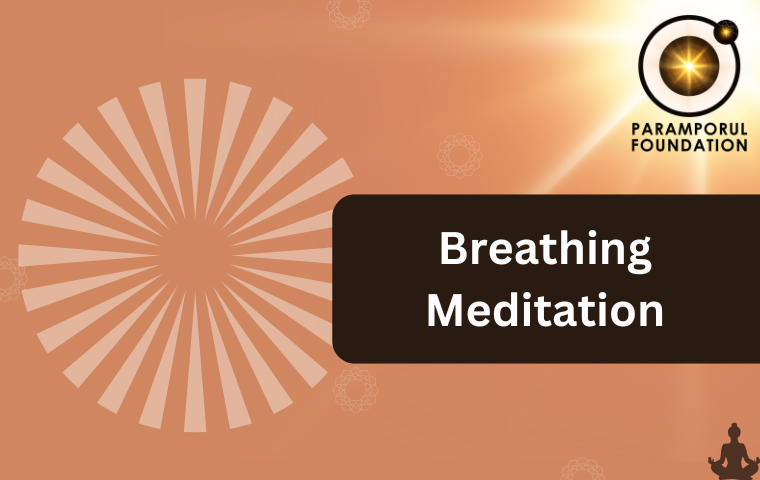Nowadays, stress has become an almost constant companion, affecting our physical and mental health in profound ways. From sleepless nights to heightened anxiety, the impact of stress can be far-reaching. However, there is a simple, natural remedy that can help counteract these effects: Breathing meditation.
Drawing from ancient traditions, this practice offers a powerful method to soothe the mind, alleviate stress, and improve overall well-being. By focusing on the breath, we can reconnect with our inner peace and find relief from the pressures of daily life. Whether you’re new to meditation or seeking a way to deepen your practice, breathing meditation provides a simple yet effective path to improved health and mental clarity.
Why Breathing Meditation is Essential?
Stress plays a significant role in negatively affecting our health, contributing to problems such as high blood pressure, anxiety, and poor sleep. Research shows that stress can even worsen heart disease over time and increase the risk of developing cancer. One of the simplest and most effective ways to combat stress is through breathing meditation.
Focusing on the breath naturally brings a sense of calm, which helps to lower stress levels and promote a sense of well-being. Studies suggest that regular breath-focused meditation can not only help manage stress but can also improve sleep, lower blood pressure, and boost mental clarity.

How to Practice Breathing Meditation
Breathing meditation is an easy practice that focuses on bringing awareness to your breath. It doesn’t require any special skills or equipment, making it a perfect option for anyone looking to begin a meditation practice. Here’s how to get started:
1. Find a Comfortable Space: Choose a quiet spot and sit comfortably without distractions. You may sit in a chair, on the floor, or lie down if that is more comfortable for you. The key is to keep your posture straight but relaxed to allow for free, natural breathing.
2. Focus on Your Breath: Softly close your eyes and direct your focus on the natural rhythm of your breath. Catch the sensation of the air as it flows in and out of your body. Don’t try to control your breath; simply observe it as it is, whether it’s shallow or deep, fast or slow.

3. Count Your Breath: If your mind starts to drift, calmly refocus by counting each breath in and out. Start by counting “one” on the first inhale and “two” on the exhale, and continue this process for several rounds. This can help keep your attention on your breath and reduce distractions from wandering thoughts.
4. Let Thoughts Pass: It’s natural for your mind to wander during meditation. When this happens, don’t be frustrated. Acknowledge the thought and let it go, returning your attention to your breath. Over time, you will become better at refocusing your mind and letting go of distractions.
The Power of Mindfulness in Breathing Meditation
Breathing meditation is not just about relaxing; it’s also a way to practice mindfulness. Mindfulness is the practice of being completely present in the moment and embracing things as they are, without judgment. This practice, which originated in Buddhist teachings, has spread to many spiritual and wellness traditions worldwide.
Focusing on your breath helps you become more conscious of your thoughts, emotions, and bodily sensations. This awareness can help you manage difficult emotions and situations with a calm, clear mind. As you continue practicing breathing meditation, you may notice that you become less reactive to stressors in daily life, leading to greater emotional resilience.
Benefits of Breathing Meditation
Breathing meditation offers a wide range of benefits for both your body and mind. Some of the most common benefits include:
- Stress Reduction: A key benefit of breathing meditation is its effectiveness in alleviating stress. Slow, deep breathing triggers the body’s relaxation response, helping to reduce heart rate and soothe the nervous system.
- Improved Sleep: Making breathing meditation a regular practice, particularly before bed, can promote quicker sleep onset and improve sleep quality. The calming effects of focused breathing help prepare the body for rest.
- Enhanced Focus and Clarity: By quieting the mind and concentrating on the breath, you can sharpen your mental focus. This can be especially useful when you need to focus on tasks or clear your mind of distractions.
- Emotional Well-Being: Breathwork helps regulate emotions and can even alleviate symptoms of anxiety, depression, and PTSD. It can also improve mood and provide a sense of peace and balance.
- Physical Health Benefits: Breathing meditation has been shown to lower blood pressure and improve lung function. It may also be beneficial for those suffering from respiratory conditions, such as asthma, by promoting deeper and more efficient breathing.
Different Types of Breathing Exercises for Meditation
There are many different breathing techniques that can enhance your meditation practice. Here are a few popular ones:
1. Diaphragmatic Breathing: This deep breathing technique involves engaging the diaphragm to breathe deeply into the abdomen. Place one hand on your chest and the other on your stomach. Breathe in deeply, letting your belly expand, then exhale and allow it to contract. This method helps activate the body’s relaxation response.

2. Box Breathing: In this technique, you have to inhale the fresh air for 4 seconds and hold your breath for 4 seconds. Then, you should exhale for 4 seconds and hold your breath again for 4 seconds. This pattern helps balance the breath and can promote relaxation and focus.
3. Alternate Nostril Breathing: A calming technique used in yoga, alternate nostril breathing involves closing one nostril at a time while you breathe in and out. This practice can help balance energy levels and calm the mind.
4. 4-7-8 Breathing: In this straightforward but powerful exercise, inhale for 4 seconds, hold for about 7 seconds, and exhale slowly for 8 seconds. This rhythm can help reduce anxiety and promote a deep sense of calm.
Creating a Consistent Practice
To experience the full benefits of breathing meditation, it’s important to practice regularly. Try to set aside a few minutes each day to focus on your breath, whether it’s first thing in the morning, during a lunch break, or before going to bed. Consistency is key to developing the skill of meditation and enhancing its benefits.
If you’re new to the practice, start with just 5-10 minutes each day. As you become more comfortable, you can gradually increase the length of your meditation sessions. You may also find it helpful to use a guided meditation video or audio to help you stay focused and calm.
Conclusion
Breathing meditation is an easy-to-practice technique that provides significant benefits for mental and physical health. Whether you’re seeking stress relief, better sleep, or a way to improve your focus, breathing meditation can help you achieve these goals. By practicing consistently and making breathing meditation part of your daily routine, you can experience a deeper sense of peace, clarity, and overall health.

